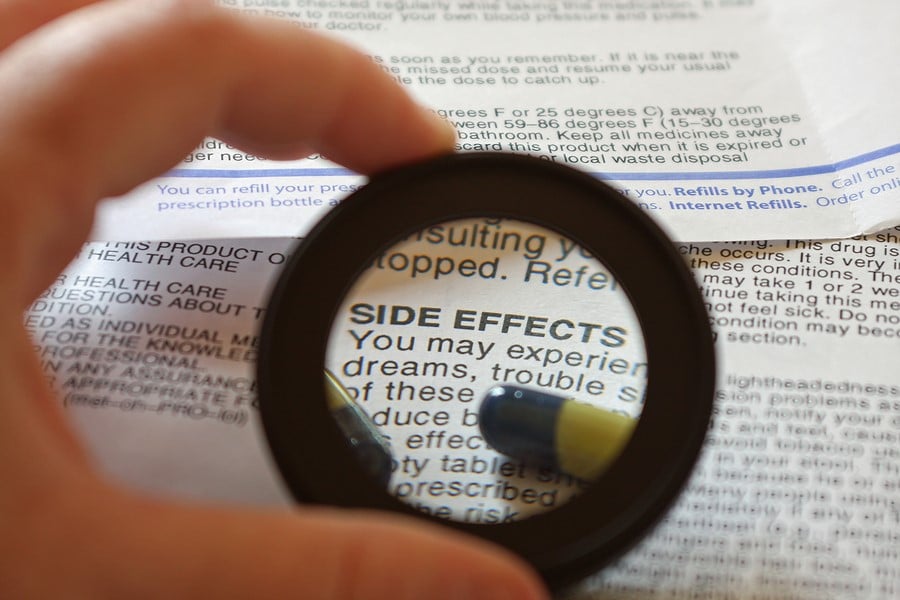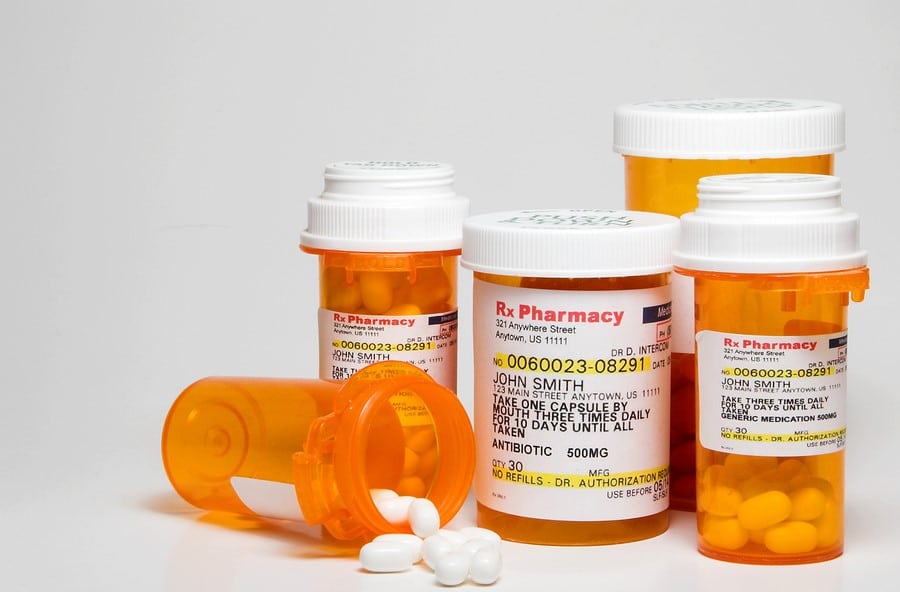
Abuse of prescription drugs intensifies negative side effects.
Have you ever actually read the little leaflet your pharmacist gives you when you pick up your prescription medication? There is good reason to do so.
The U.S. Food and Drug Administration (FDA), the agency tasked with ensuring that drugs manufactured are relatively safe for consumers, has this to say:
“Medicines are relied upon to treat disease and improve health. Although medicines can make you feel better and help you get well, it’s important to know that all medicines, both prescription and over-the-counter, have risks as well as benefits.”
This means that, even if taken exactly as a physician prescribes, prescription medications can potentially be harmful. That is why you typically receive a leaflet with your prescription explaining possible side effects.
Considering the potential dangers involved in taking prescription meds as directed, it is clear that an even riskier behavior is taking them in ways contrary to the instructions provided by your doctor. Abuse of prescription drugs is dangerous at best. At worst, it is deadly.
How Prescription Drug Abuse Affects the Brain
While drugs affect the body in different ways, they all have one thing in common. Drugs chemically alter the brain. ProjectKnows’ “The Effects of Drug Abuse” explains:
“When chemicals are introduced to the brain, the chemical messengers in the brain are altered, causing the brain to send a different set of signals to the body. Chemicals can cause individuals to see, think, and act very differently than they normally would, which is why drug abuse affects individuals and the world around them.”
It is this chemical reaction that gave rise to the familiar advertising slogan, “This is your brain on drugs.”
Prevalence of Prescription Drug Abuse
Legally Dead reports the following shocking statistics regarding the prevalence of prescription drug abuse:
“26 million Americans between 26 and 50 have used prescriptive medication for non-intended/non-medical use. For those who are 50 years old and older and have abused prescriptions, that number is 13 million. For 18-25 year-olds, it’s 9 million. And for those adolescents and teens who fall in the 12-17 range, 3 million have used prescriptions for non-medical purposes.”
Common Types of Prescription Drugs and Their Side Effects
The most commonly abused prescription drugs fall into four major categories: depressants, opioids and morphine derivatives, stimulants, and antidepressants. These drugs at prescription strength are potent meds. Abusing them intensifies their potency and makes it more likely that the abuser will experience dangerous side effects.
Depressants
Known by the slang name “downers,” depressants come in a variety of forms. This group of drugs includes medications like Haldol, Seroquel, Xanax, Valium, Klonopin, Halcion, Librium, Numbatal, and Seconal.
According to the Foundation for a Drug-Free World, short-term side effects of depressants include:
- Slowed brain function and slowed breathing
- Lowered blood pressure
- Poor concentration, confusion, and sluggishness
- Disorientation, dizziness, and slurred speech
- Seizures
Because use of depressants is linked to increased chance of addiction, it is important to be aware of the potential long-term effects as well. They include:
- Severe depression, panic, and paranoia
- Chronic fatigue, breathing problems, and sexual dysfunction
- Diabetes and weight gain
Those who habitually abuse depressants at high dosages are at risk for agitation, high body temperature, delirium, hallucinations, and convulsions.
Withdrawal from abuse of depressants is a difficult and painful affair, causing insomnia, weakness, and nausea. In some cases, withdrawal can be life-threatening.
Opioids and Morphine Derivatives
Opioids and morphine derivatives are drugs designed to help control pain. Common prescription painkillers include Tylenol with Codeine, Roxanol, Demerol, Dilaudid, Percodan, Percocet, and OxyContin.
Short-term effects of abusing these powerful drugs include:
- Drowsiness
- Slowed breathing
- Constipation
- Unconsciousness
- Nausea
- Coma
Prolonged use or abuse of these drugs leads to physical dependence and addiction. Withdrawal from this type of drug causes intense muscle pain, insomnia, diarrhea, vomiting, and cold flashes. In some cases, respiratory failure has occurred.
Because of their highly addictive nature, the abuse of painkillers has increased 400 percent in the last decade. Accidental overdose deaths caused by prescription drugs now exceed the number of suicides and motor vehicle deaths in some U.S. states.

Using prescription meds exactly as directed helps prevent addiction and abuse that leads to severe outcomes.
Stimulants
Stimulants, also known as “uppers,” are designed to temporarily increase alertness and energy and include such drugs as Ritalin, Concerta, and Dexedrine. However, when abused, stimulants can cause:
- Extreme exhaustion
- Apathy and depression
- Hostility and paranoia
- Irregular heartbeat
- Dangerously high body temperatures
Antidepressants
Antidepressants such as Prozac, Zoloft, Paxil, Celexa, and Remeron can produce a laundry list of negative side effects such as:
- Insomnia, confusion, and paranoia
- Irritability, nervousness, and anxiety
- Violent thoughts and actions and criminal behavior
- Agitation, aggression, and hostility
- Suicidal thoughts or suicide
- Tremors, sweating, and irregular heartbeat
- Hallucinations and psychosis
- Akathisia (a painful inner agitation; inability to sit still)
Withdrawal symptoms are quite severe and include such things as:
- Suicidal thoughts
- Aggression and anxiety
- Depression, crying spells, and insomnia
- Dizziness, headaches, and a feeling of receiving an electric shock to the brain
- Vomiting and tremors
When You Need Help
Prescription drug abuse is a serious and potentially fatal practice. Because many prescription drug abusers experience severe withdrawal symptoms that can cause permanent damage or even death, it is important to undertake your road to addiction recovery with the aid of trained professionals who can help ensure your safety as you recover.
We’re Here to Help
If you or a loved one is struggling to kick a prescription drug habit, help is available. Please do not delay to protect yourself and start the healing process. If you live in the St. Louis area, contact us today to take the first step on the road to recovery.







